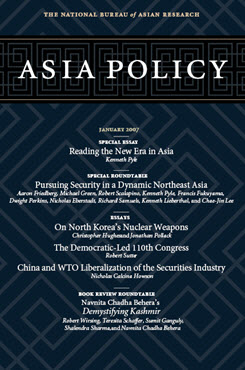China and WTO Liberalization of the Securities Industry
Le Choc Des Mondes or L'Empire Immobille?
This research note evaluates the degree to which China has fulfilled its WTO commitments in the securities industry to date and speculates positively on the chance for increased opening to foreign participation.
EXECUTIVE SUMMARY
MAIN FINDINGS
- Despite nationalistic and protectionist sentiment and fears about a destabilizing Chinese-style “Big Bang” liberalization on China’s embryonic capital markets, Beijing has demonstrated full compliance with China’s 2001 WTO commitments on foreign investment in the securities and fund management service sectors. In several ways, the PRC has gone beyond its WTO promises.
- The commitment to liberalization has come about not just by pressure from interested foreign financial firms but also by Chinese policymakers and industry participants who understand that (1) China’s own capital market is a key mechanism supporting efficient capital allocation and company monitoring and (2) foreign capital, know-how, and global exposure must play a role in the development of the securities service sector that serves that capital market.
POLICY IMPLICATIONS
- The strong motivations within China for increased domestic liberalization mean the lifting by October 2007 of the halt on approvals for additional foreign-invested securities firms confirmed in September 2006.
- There is a strong possibility that calls by elite actors in China for accelerated liberalization will be realized, resulting in increased—and in some cases controlling—foreign participation in the Chinese securities industry.
- Beijing has proven in one sector that China can act quickly and comprehensively in the fulfillment of its WTO promises—in law, and in fact. This case study shows that in sectors like the capital markets, where there are no pre-existing industry or vested interests to speak of and links to globalized markets are strong, domestic resistance to liberalization can be overcome—benefiting Chinese reformers and capital markets supporters while not disadvantaging global financial firms.
About Asia Policy
Asia Policy is a peer-reviewed scholarly journal presenting policy-relevant academic research on the Asia-Pacific that draws clear and concise conclusions useful to today’s policymakers. Asia Policy is published quarterly in January, April, July, and October and accepts submissions on a rolling basis. Learn more


